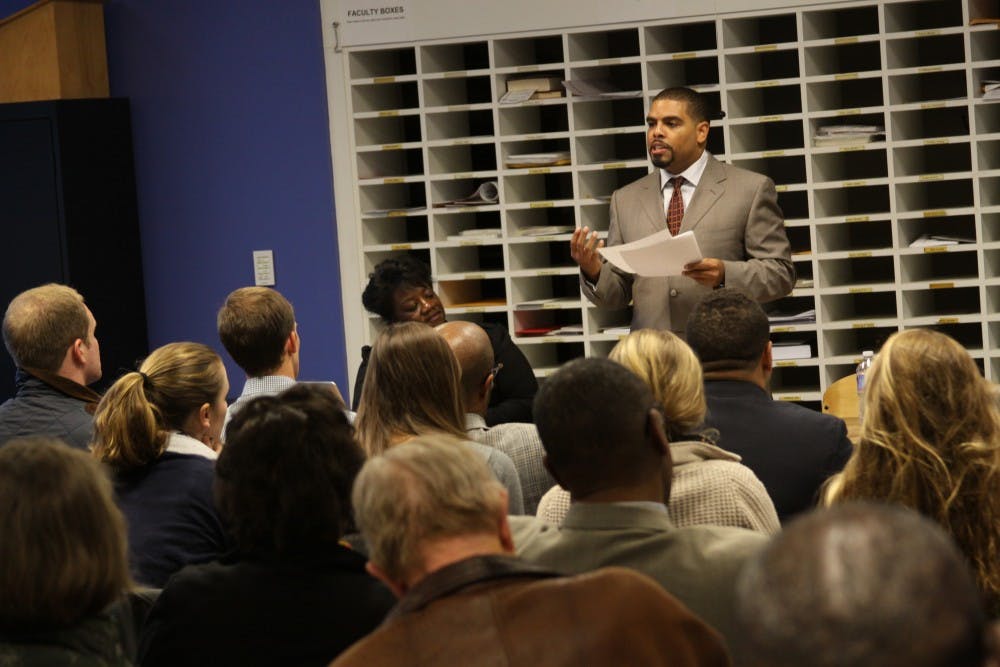Professors, socioeconomic analysts and members of the University community convened in a packed Bryan Hall Thursday at a forum titled “Race, Wealth and the Price of College Admission.”
In light of this summer’s Supreme Court case about using race as a factor in college admissions, Fisher v. University of Texas, questions have arisen about universities creating a racially and socio-economically diverse student body. The justices returned the case to the lower courts for further review, rather than making a declarative statement on the issue.
Tressie McMillan Cottom, a sociology Ph.D. candidate at Emory University and research fellow at the Center for Poverty Research at the University of California-Davis, said institutions play a tremendous role in developing and perpetuating social trends.
“So much of our life is governed by bureaucratic arrangements, and yet, we tend not to look at organizations as mechanisms for reproducing inequality,” she said. “So essentially if we think about college admissions as an organizational arrangement, an organizational mechanism, and a very important one critical to higher education, I say we’ve got to look at some of the social processes that deliver people differently to different types of institutions — an unequal childhood, for instance.”
Darrick Hamilton, associate professor of economics at the New School for Social Research, provided an economic perspective on the issue. Looking at the wealth gap between whites and blacks in the United States, he noted that the unemployment rate among whites is just more than 6 percent, compared to 13 percent for blacks.
“Blacks are at a perpetual state of unemployment crisis,” Hamilton said. “The common rhetoric is that blacks need to … ‘take personal responsibility,’ … but perhaps the main reason that blacks have low levels of business wealth is the low-level of financial capital with which they begin.”
The University currently uses a race-conscious admissions process, asking students to indicate their race when applying but not requiring they do so, dean of admissions Greg Roberts said.
“We are interested in getting to know students through their application, and if a student’s family background or life obstacles and challenges have influenced who they have become, and who they could be, then this can be important to our assessment,” Roberts said in an email.







